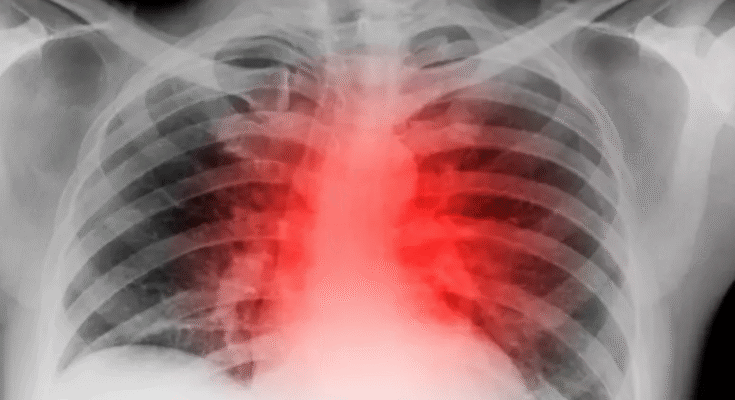It’s a phrase we’ve all heard before — “dying of a broken heart.” It sounds poetic, almost metaphorical. But science now confirms that the emotional pain of losing a loved one can have real and sometimes fatal effects on the heart. In fact, new research sheds light on how grief and stress from emotional trauma can trigger a physical response known as “broken heart syndrome,” or stress-induced cardiomyopathy — a condition that mimics a heart attack and can be just as dangerous.

What Is Broken Heart Syndrome?
Broken heart syndrome, medically called Takotsubo cardiomyopathy, occurs when the heart muscle weakens suddenly due to severe emotional or physical stress. The condition was first identified in Japan in the 1990s and is named after a Japanese octopus trap, “takotsubo,” because the heart takes on a similar shape during the syndrome.
Unlike a heart attack caused by blocked arteries, broken heart syndrome occurs when a surge of stress hormones, particularly adrenaline, temporarily stuns part of the heart. The symptoms — chest pain, shortness of breath, irregular heartbeat — can be nearly identical to those of a heart attack. While many patients recover with treatment, in some cases, it can lead to heart failure or even death.

The Science Behind the Syndrome
In a recent study published in the Journal of the American Heart Association, researchers analyzed data from thousands of patients diagnosed with Takotsubo cardiomyopathy over the past decade. Their findings confirm that broken heart syndrome is not only real but becoming more common — especially among certain high-risk groups.
According to the study, the incidence of the condition has increased steadily in the last few years. Researchers believe this may be due in part to the heightened stress levels people face in modern life, including the effects of the COVID-19 pandemic, financial strain, and social isolation.
Dr. Susan Harding, a cardiologist and one of the study’s lead authors, explains, “This condition is a vivid example of how deeply intertwined our emotional and physical health really are. When people experience devastating loss, their body sometimes responds in extreme ways — and the heart is particularly vulnerable.”

Who Is Most at Risk?
The study uncovered several risk factors that make some individuals more prone to suffering from broken heart syndrome. The most striking finding? Nearly 90% of the cases occurred in women — particularly postmenopausal women over the age of 50.
Hormonal differences seem to play a major role. After menopause, estrogen levels drop significantly, and this hormone is believed to have a protective effect on the cardiovascular system. Without it, the heart may be more susceptible to stress-induced damage.
Other risk factors include:
- History of anxiety or depression: Individuals with mental health challenges are more likely to experience extreme emotional responses to loss.
- Sudden loss or trauma: The death of a spouse, child, or close friend is a common trigger. However, even surprising good news — like winning the lottery — has been known to cause the condition.
- Preexisting heart conditions: People with high blood pressure or a history of heart disease are at higher risk.
- Low social support: Those who live alone or feel isolated may struggle more with grief, compounding their emotional and physical reactions.
Interestingly, while women are far more likely to develop the syndrome, when men do experience it, the outcomes are often worse. Men tend to have higher mortality rates, possibly because their symptoms are more severe or go unrecognized for longer.

Not Just Emotional Pain
Although most cases are triggered by emotional loss — such as the death of a loved one or a painful breakup — physical events can also be a cause. Major surgeries, car accidents, or even asthma attacks have been known to bring on broken heart syndrome.
In one widely publicized case, actress Debbie Reynolds died of a stroke just one day after her daughter, actress Carrie Fisher, passed away. Many speculated that Reynolds’ death was a classic case of broken heart syndrome — a real-life example of how powerful grief can be.

Diagnosing and Treating Broken Heart Syndrome
Because the symptoms of broken heart syndrome resemble those of a traditional heart attack, it’s often initially misdiagnosed. However, there are key differences. Tests for blocked arteries will typically come back normal in patients with Takotsubo cardiomyopathy. Imaging studies may reveal the distinct ballooning shape of the heart’s left ventricle.

Treatment generally involves supportive care — medications to reduce the workload on the heart and manage symptoms, such as beta-blockers and ACE inhibitors. Most people recover within a few weeks, but some may experience lingering effects or be at risk for recurrence.
Mental health support is also a critical part of recovery. Counseling, support groups, or therapy can help individuals work through their grief and manage stress in healthier ways.

What Can Be Done to Prevent It?
While we can’t always predict or prevent emotional trauma, there are steps people can take to reduce their risk:
- Build a strong support network: Having friends, family, or a community to lean on during tough times can provide a buffer against overwhelming stress.
- Practice stress management techniques: Meditation, yoga, regular exercise, and deep-breathing exercises help regulate the body’s stress response.
- Seek mental health help early: Don’t ignore signs of depression, anxiety, or intense grief. Speaking to a therapist or counselor can help manage emotions before they affect physical health.
- Stay physically healthy: Managing blood pressure, cholesterol, and heart disease risk factors makes the heart more resilient under stress.

The Heart-Mind Connection
This study adds to the growing body of evidence showing that our emotional and physical health are deeply connected. The heart is not just a pump — it’s also responsive to our emotional world. Extreme sadness, fear, or stress can create shockwaves through the body, especially in those already vulnerable.
Understanding the real risk of broken heart syndrome reminds us to take emotional pain seriously — not just as something to get over, but as a genuine health concern that deserves attention and care.
As Dr. Harding puts it, “We often say someone died of a broken heart without thinking much of it. But now we know it can be heartbreakingly true.”





